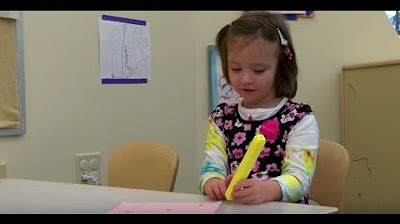Child Prisoners in the Philippines (international documentary)
Summary
TLDRIn the Philippines, children as young as nine are jailed alongside adults for minor offenses. The overcrowded Sabu City prison houses 1,800 inmates, including children who suffer from lack of basic amenities and are at risk of abuse. Esperanza Valena, an 84-year-old lawyer, offers pro bono representation, while her daughter Nina runs educational programs to help these children. Despite laws against mixing minors with adults in prison, children are left vulnerable, and many are re-incarcerated after release, highlighting a dire need for juvenile detention centers and educational support.
Takeaways
- 🇵🇭 In the Philippines, children as young as nine can be charged and convicted of criminal offenses.
- 👨👧👦 Thousands of children are incarcerated in adult prisons for minor crimes.
- 👦 Tommy, an 11-year-old, has been to prison three times, with his first incarceration at age eight.
- 🏭 In the southern Philippines, political unrest and economic instability lead to children seeking work and becoming addicted to substances.
- 👨👦 Danny, nine, was jailed with his brother and friend for stealing six cans of sardines.
- 🌆 Fore City prison, designed for 200, now houses 1,800 prisoners, with no segregation between adults and minors.
- 👵 Esparanza Valena, an 84-year-old lawyer, offers pro bono representation to children in Sabu City prison.
- 🚫 It's illegal to jail children with adults in the Philippines, but authorities circumvent this by housing them in separate cells with open doors at night.
- 💧 Prisoners get water to wash only when it rains, highlighting the harsh conditions.
- 📚 Twice a week, children in Sabu City prison are allowed to attend a literacy program run by the Shar child movement.
- 🏡 The Valena family has helped educate over 3,000 children to keep them out of jail, focusing on the brightest and poorest.
- 🔄 Despite his release, Tommy returned to prison for stealing three months after being freed.
Q & A
What is the minimum age at which children can be charged with a criminal offense in the Philippines?
-Children as young as nine years old can be charged and convicted of a criminal offense in the Philippines.
How old was Tommy when he first went to prison?
-Tommy was eight years old when he spent his first night in prison.
What are some of the reasons children in the southern Philippines end up in prison?
-In the southern Philippines, political unrest and economic instability force children to leave their homes in search of work, leading some to become addicted to substances like glue or shaboo, a derivative of cocaine.
What was the original capacity of the Fore City prison?
-Fore City prison was originally constructed to house 200 prisoners.
How many prisoners does Fore City prison currently contain?
-Fore City prison now contains 1,800 prisoners.
What is the main issue with the prison mentioned in the script?
-The main issue is the lack of segregation between adults and minors, with some adults charged with heinous crimes like rape, robbery, and murder.
Who is Esparanza Valena and what does she do for the children in Sabu City prison?
-Esparanza Valena is an 84-year-old grandmother and lawyer who offers free legal representation to children in Sabu City prison.
What is the term used to describe the environment in the prison that influences children to commit more crimes?
-The prison is referred to as the 'University of Crime' due to its influence on children to commit more crimes.
How does the Shar child movement help children in Sabu City prison?
-The Shar child movement runs a literacy program twice a week, allowing children to leave their cells and learn, with the aim of helping them adjust to life in the community and potentially become assets.
What is the Valen family's approach to keeping children out of jail?
-The Valen family believes in educating children to keep them out of jail, focusing on the brightest and the poorest by assessing their intelligence and home conditions.
What happened to Tommy after he was released from prison?
-Three months after being released from prison, Tommy was caught stealing and returned to prison, where he is being minded by an uncle in one of the adult cells.
What is the status of the juvenile detention center in Sabu City?
-Plans for a juvenile detention center in Sabu City were approved a decade ago, but due to lack of funds, the building is still not finished.
Outlines

This section is available to paid users only. Please upgrade to access this part.
Upgrade NowMindmap

This section is available to paid users only. Please upgrade to access this part.
Upgrade NowKeywords

This section is available to paid users only. Please upgrade to access this part.
Upgrade NowHighlights

This section is available to paid users only. Please upgrade to access this part.
Upgrade NowTranscripts

This section is available to paid users only. Please upgrade to access this part.
Upgrade NowBrowse More Related Video
5.0 / 5 (0 votes)





